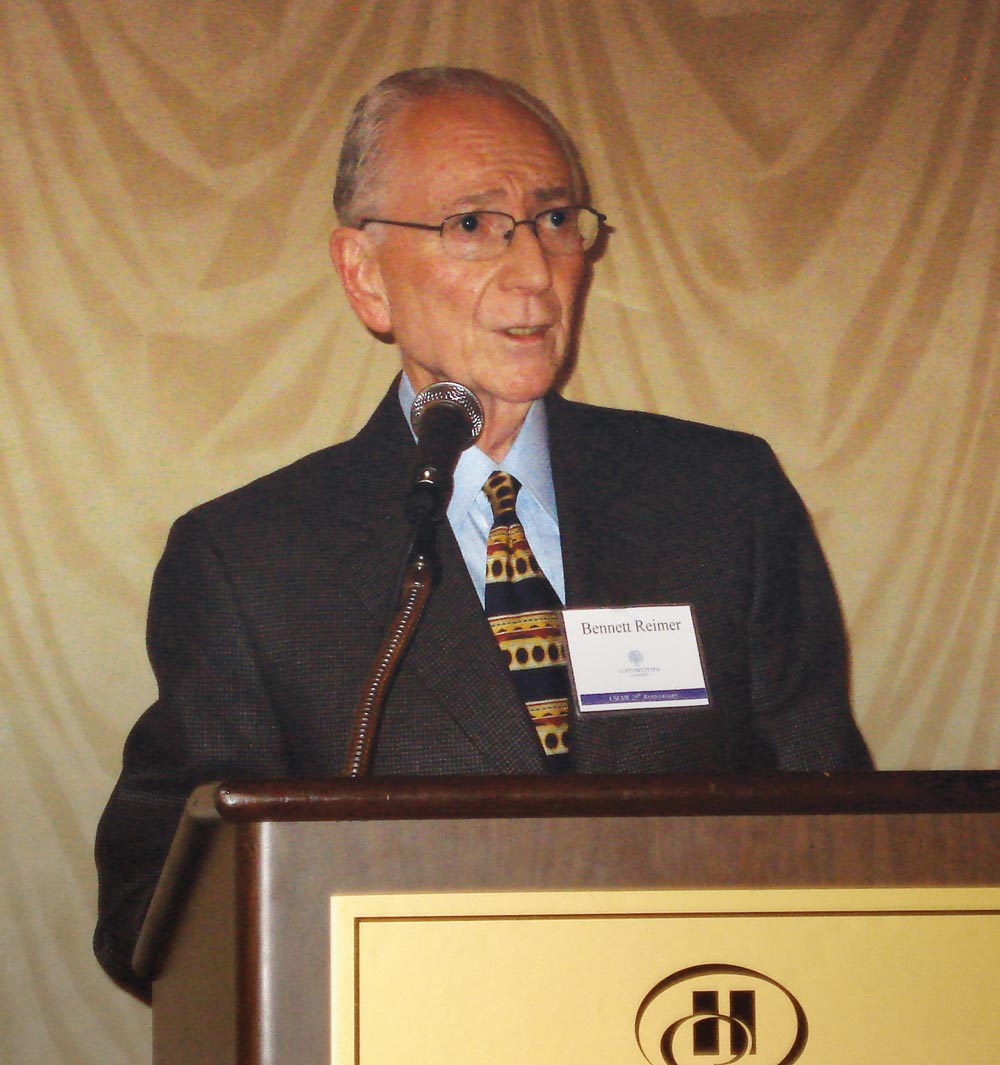 The lineup of accomplished university educators and public school teachers in Mason Hall for the New York State School Music Association’s National Association for Music Education conference in early April was impressive enough.
The lineup of accomplished university educators and public school teachers in Mason Hall for the New York State School Music Association’s National Association for Music Education conference in early April was impressive enough.
But the DVD that over 100 current and future teachers saw of Dr. Bennett Reimer, a Fredonia graduate and one of the world’s leading philosophers in music education — sharing his perspective on musical intelligence and thoughts on the important role and responsibility music educators have in developing each student’s musical intelligence — was clearly the high note.
This was the first time Fredonia hosted a biennial NYSSMA Collegiate Conference. Fredonia is also the home of NYSSMA’s largest collegiate chapter.
A clarinet player who wanted to be a high school band director, Reimer, ’54, became a champion of K-12 music education and wrote nearly two dozen books, including music textbooks for children. His seminal, A Philosophy of Music Education, was published in 1970 and translated into five languages.
A second edition followed in 1989;
a third in 2003.
“Many of the students were aware of whom Bennett Reimer was and his importance in music education, but that knowledge is primarily based on book learning and didn’t really have a context,” explained Dr. Jill Reese, a member of Fredonia’s Music Education faculty and the conference co-organizer. “It’s sort of like knowing that Walt Disney was the creator of Disney World, without the context of hearing directly from him or experiencing the magic that is Disney World.”
A PowerPoint presentation featuring photographs of Reimer as an undergraduate also struck a chord with students, allowing them to connect with him on a personal level. “They realized that he was once where they are, and that he became someone who has been immensely influential in music education,” Reese explained.
Reimer explored previous conceptions of intelligence and unveiled his argument with previous conceptions and his beliefs of what truly constitutes intelligence in general and specifically musical intelligence. His heavy concepts about democratic music education are usually difficult for pre-service teachers to grasp, but Reese said each student was “riveted and seemed to rise to the challenge of making his/her own personal meaning of the experience.”
For many students, Reimer’s “What is Musical Intelligence” video shown in Diers Recital Hall was the marquee attraction of the conference that enlightened pre-service students enrolled at six colleges and universities as well as practicing teachers from six school districts. This was due, in part, to his insight, and in part, to his foresight.
Still actively engaged in his passion of music education, Reimer, was planning to return to his alma mater as the conference keynote speaker, but passed away last November at the age of 81. Sensing last year that his health might prevent him from traveling, Reimer — always a wise teacher and problem solver — prepared the DVD so he could still contribute to the conference.



